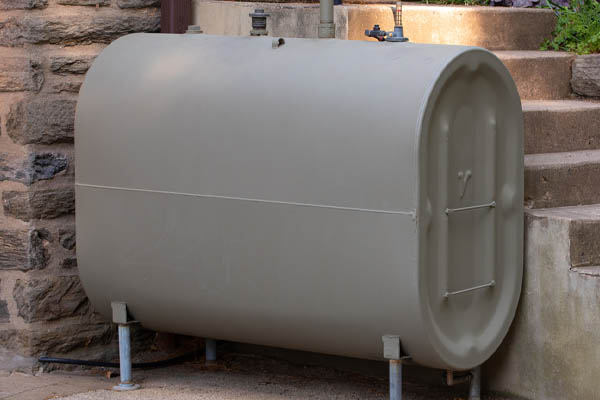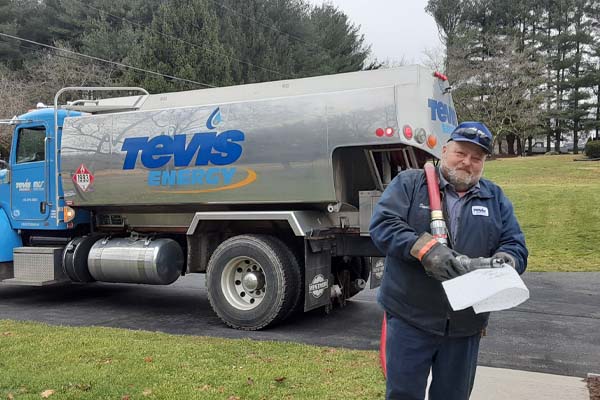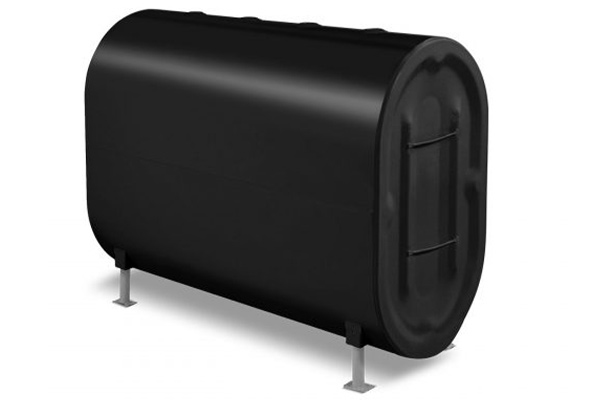Contents
Heating oil is an integral part of many homes, efficiently providing heat and hot water throughout the colder months. The fuel contained within a residential tank could last for an extended period depending on consumption patterns and tank capacity. This ensures a continued source of warmth even when winter is at its harshest. One challenge that can compromise the longevity and efficiency of your heating oil tank is the accumulation of sludge. Though inevitable over time, you can take steps to delay the onset of heating oil tank sludge. This allows your oil tank to operate at peak efficiency for a longer duration. This article delves into the world of heating oil tank sludge, its formation, and how to prevent it.
Understanding Heating Oil Tank Sludge
Sludge development in a heating oil tank is a gradual process that requires specific conditions. Familiarize yourself with these conditions, the factors contributing to sludge development, the problems it brings, and ways to prevent its occurrence.
Related Article: The Importance Of Regular Heating Oil Filter Replacements
What is Heating Oil Tank Sludge?

A heating oil tank is more than a container for heating oil. It’s also a collection point for dirt, debris, rust, and moisture. Microorganisms flourish in this damp, dark environment. These substances coalesce at the bottom of the tank, leading to the formation of thick sludge. The chances of sludge forming are higher in tanks that are left nearly empty for prolonged periods. For instance, many homeowners tend to forget about their tanks once winter is over, only to remember them when temperatures start to dip again. Fuel delivery personnel often spot the sludge when they come to refill the tank.
What Causes Tank Sludge?

Every heating oil tank has a vent pipe allowing air to flow in and out. This ventilation maintains a pressure equilibrium inside the tank. However, the cold moist air can condense on the tank’s interior walls. Over time, rust develops, flakes off, and sinks to the bottom of the tank. Leftover fuel reacts with light, heat, air, rust, water, and other elements inside the tank. Bacteria find these conditions conducive and feed on these substances, gradually forming sludge.
Problems Associated with Tank Sludge
Here are some of the potential issues that oil tank sludge can lead to.
- Reduced Energy Efficiency: Addressing the problem of oil tank sludge is essential to maintaining the optimal operation of your heating system. Sludge, being thick and sticky, can clog the supply line and block the oil filter, potentially hindering the heating system from getting the fuel it needs. Even if the oil manages to flow through, a clogged filter can impair energy efficiency, resulting in higher heating costs.
- Heating System Breakdown: The formation of sludge might not constitute an emergency, but it can slowly compromise the performance of your HVAC equipment. In the worst-case scenario, sludge can infiltrate sensitive areas and cause damage, leading to a system breakdown. The furnace or boiler may become unresponsive, necessitating major HVAC repairs. Some oil tanks might also need replacing due to leaks and sediments. If your tank is riddled with rust, it’s wise to consider getting a new one, as the weakened walls can lead to further problems.
Related Article: What Is A Double-Wall Heating Oil Tank?
Preventing Heating Oil Tank Sludge
Prevention is always better than cure. Proactive measures to deter sludge formation can save you from its associated headaches. Here are some strategies that can help keep your tank clean, prevent clogs, and protect the longevity of your heating system.
1. Regular Heating Oil Deliveries

Sludge formation becomes more likely when fuel levels drop significantly. Scheduling oil deliveries before your tank nears empty can prevent the humid air from causing condensation on the tank walls, thereby reducing the chances of sludge formation. It’s also a safeguard against fuel line clogs, which could disrupt your heating supply and leave your family in the cold.
2. Using Heating Oil Additives
Chemical additives can play a pivotal role in preventing sludge formation. By adding these into your tank prior to your next delivery, you can break down existing sludge and simplify cleaning. Additives with a dispersant compound can significantly reduce the size of sludge particles, enabling them to pass freely through lines and filters. However, always check with your provider before using additives, as some heating oil suppliers already include them in their fuel to prevent sludge formation.
Related Article: 10 Ways to Save Money on Heating Oil Costs
3. Pay Attention to Your Heating Oil Tank

Even with some maintenance activities being restricted in some states, regular care can significantly improve your tank’s health. Simple actions like routinely replacing the oil filter can make a big difference. Additionally, professional technicians should be enlisted for periodic inspections, as they can identify any signs of clogs or sludge deposits before they escalate into major issues.
4. Use High-Quality Home Fuel Oil
Choosing premium quality heating oil, which contains fewer contaminants, can help prevent sludge formation. Find a reputable supplier in your local area who can deliver clean fuel and provide assistance in sludge prevention.
Related Article: Top 10 Boiler Problems Homeowners Experience
5. Keep the Heating Oil Tank Full
Try to keep your tank full throughout the year, even during warmer months. Doing so minimizes the amount of air and water vapor in the tank, reducing the chances of rust and bacterial growth and, consequently, sludge formation.
Conclusion
Your heating oil tank may appear static, but its interior is quite dynamic. With air and fuel constantly flowing, water vapor condensing on the walls, and rust forming, maintaining the tank’s health can be a challenge. However, by taking the appropriate preventive measures, you can keep the tank clean, minimize sludge formation, and ensure the optimal functioning of your heating system. A little bit of attention and care can go a long way in extending the life and performance of your heating oil tank.
Related Article: Can I Put Diesel Fuel in My Home Heating Oil Tank?
Call Tevis Energy For Your Home Heating Oil Requirements

Tevis Energy is a trustworthy heating oil delivery company that services central Maryland and southern Pennsylvania. Our company offers affordable and the most competitive heating oil prices in the area. Our goal is to provide you with excellent products and services. When you choose us to be your oil supplier, you can rest easy knowing that you will have correct and prompt heating oil deliveries at the best possible prices. Furthermore, we offer various heating oil delivery plans and financing options as a way to customize your oil deliveries. Be sure to call us today to learn more.
Tevis Energy has certified and highly trained HVAC technicians to cater to all your heating and cooling needs. We guarantee that each of our techs has the experience, skills, and knowledge to provide excellent HVAC services. Our team can assist you with installations, repairs, maintenance, and much more. Our superior HVAC solutions always come at affordable costs, and we back all of our work with a guarantee.
Call us today to learn more about the products and services our company offers. We provide free, in-home estimates. Click the link to view our service area.
You can click here to contact us now or call us at (410) 876-6800 to find out more!
Posted in Blog
Tags: